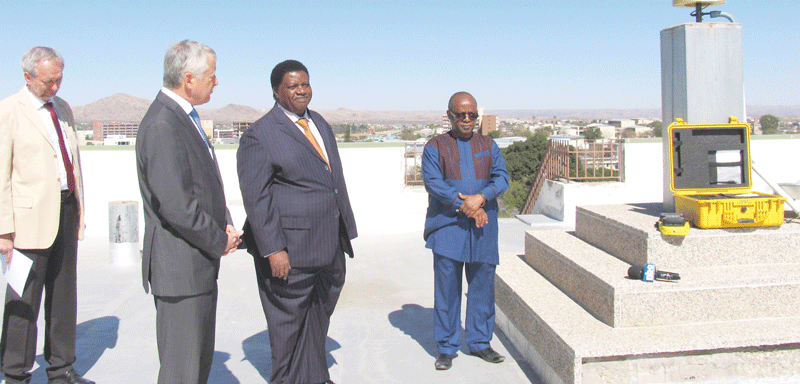
Investment should be a priority for new rightholders
 The Ministry of Fisheris and Marine Resources this year granted fishing rights to 156 companies who formed joint ventures. These fishing rights however were not granted on a silver platter and thus the Ministry has encouraged a sense of investment and social responsibility from the new right holders.
The Ministry of Fisheris and Marine Resources this year granted fishing rights to 156 companies who formed joint ventures. These fishing rights however were not granted on a silver platter and thus the Ministry has encouraged a sense of investment and social responsibility from the new right holders.
The new companies received total allowable catch (TAC) rights for the duration of seven, 10, 15 and 20 years. A contribution of close to N$315 965 783 was invested in the local economy by the fishing industry during 2011.
Granting of fishing rights is one of the current fisheries management systems in Namibia. The main purpose of these rights is to limit the number of entrants and control fishing for resource management purposes. In addition, the rights base system has also been used to promote the Namibianisation of the sector, which is aimed at securing increasing benefits for Namibia, especially through onshore development.
The performance of rightholders in relation to their compliance with policies, laws, regulations and conditions attached to their rights, will be closely monitored and periodically evaluated to determine conformity.
In his annual address of the fisheries sector earlier this year, Fisheries Minister Bernard Esau, said even though a remarkable socio-economic contribution was made during 2011 to the tune of N$16 134 772, “corporate social responsibility must be honoured by each and every company which has been given a right and a quota without exception.”
Esau however said that the socio- economic contribution made in 2011 was indeed a good indication that fishing companies feature strongly when it comes to supporting Namibia through in imperative areas such as education, health and project development, complimenting the Targeted Intervention Program for Employment and Economic Growth (TIPEEG).
He further emphasised that in the business of commercial fishing, right holders must know that in order to achieve success they should assume a culture of winning.
In a 2004 study – Duration of Fishing Rights and Investment: an Empirical study of Investmet in Namibian Fisheries conducted by Panduleni Ndinelago Elago – it is stated that high value of investment in Namibia can only be expected when there is potential to be at par with the international world market. Companies that have been granted rights and have made investments in the industry do so in the belief that the rights will be renewed, provided that they meet the requirements of the fisheries policy.
The study reveals that in the case of the fishing industry, uncertainty always arises either due to many factors such as natural fluctuations, lack of knowledge of the fish biology, market price fluctuations (international market prices in the case of Namibia which is too dependent on export trade), changes in exchange rates and tight market competition, thus when a company is granted long term rights, having investment in the sector, it is expected that the same company will continue to introduce new strategies that can lead to more investment.









































